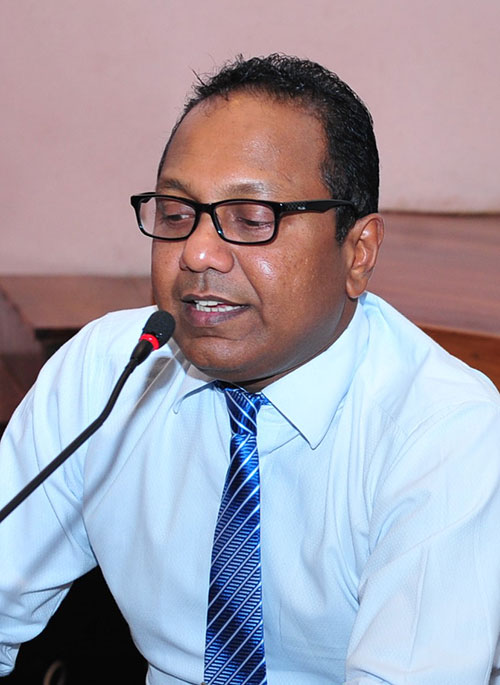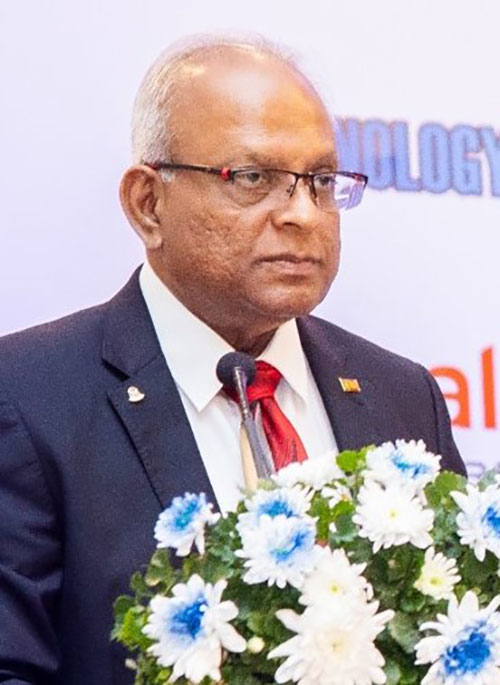NCE
NCE Emphasizes Critical Importance of GSP+ to Sri Lanka’s Export Sector
Calls for National Commitment to Sustain Facility Amid Economic Recovery
The National Chamber of Exporters of Sri Lanka (NCE) emphasizes the strategic importance of the European Union’s Generalised Scheme of Preferences Plus (GSP+) in bolstering Sri Lanka’s economic recovery and maintaining its export competitiveness on the global stage. As the country works to stabilize its economy following unprecedented challenges, the NCE calls for a united national effort to retain the GSP+ facility and pledges its full support to the Government in this regard.
The GSP+ is a special trade arrangement offered by the European Union to developing countries that implement 27 international conventions related to human rights, labour rights, environmental sustainability, and good governance. It allows Sri Lanka to export more than 6,000 products to the EU market on a duty-free basis. Key beneficiaries include the apparel, seafood, rubber products, ceramics, processed foods, and tea sectors—all of which play a vital role in job creation, rural livelihoods, and foreign exchange earnings. Sri Lanka first gained access to GSP+ in 2005. However, the facility was suspended in 2010 due to non-compliance with the EU’s stipulated conventions. The loss of GSP+ caused serious setbacks to the export sector, particularly in terms of lost market share and investor confidence. After years of policy reform and diplomatic engagement, Sri Lanka regained GSP+ status in 2017. Since then, it has been a key element of the country’s trade policy, enabling exporters—particularly SMEs—to compete effectively in one of the most demanding consumer markets in the world.
Sri Lanka is currently in the process of economic stabilization and recovery following one of its worst financial crises. With sovereign debt repayments resuming in 2025, the need for steady foreign exchange earnings has intensified. While tourism is showing signs of recovery and worker remittances are gradually improving, exports remain the most stable and scalable source of foreign currency for the country. According to provisional data, Sri Lanka’s merchandise exports reached USD 13 billion in 2024, despite global challenges. Encouragingly, the first quarter of 2025 has recorded a 6.5% year-on-year increase in exports, with growth across apparel, food and beverage, rubber, ICT services, and mineral products. The European Union continues to be one of Sri Lanka’s top export destinations, accounting for over 20% of total export earnings. Any disruption to GSP+ access could severely impact this positive momentum.
“As Sri Lanka works to rebuild its economy, GSP+ is not just important—it is indispensable,” said Mr. Indhra Kaushal Rajapaksa, President of the NCE. “It provides our exporters with an essential edge in one of the most competitive markets in the world. With debt obligations mounting and global investor sentiment still tentative, it is critical that we do everything possible to retain GSP+.” To remain eligible for GSP+, Sri Lanka must demonstrate continued compliance with the 27 international conventions under the scheme. The EU regularly monitors the implementation of these conventions, and the next review cycle is expected soon. “We must treat the GSP+ facility as a national economic priority,” added Mr. Rajapaksa. “This is not just about fulfilling international obligations—it is about safeguarding jobs, supporting local industries, attracting investment, and ensuring that Sri Lanka remains integrated into global value chains.”
Mr. Shiham Marikar, Secretary General and CEO of the NCE, echoed these sentiments. “We cannot afford to repeat the mistake of 2010. The loss of GSP+ at that time inflicted serious damage on our economy. We must now be proactive, transparent, and collaborative in our approach,” he stated. He further emphasized the Chamber’s readiness to assist the Government of Sri Lanka by convening multi-sector consultations with exporters, providing technical and policy input on compliance gaps, facilitating dialogue between local stakeholders and EU trade representatives, and supporting the preparation of national submissions and review reports. “The NCE is fully committed to supporting the Government in retaining GSP+. We will engage constructively with ministries, regulatory agencies, diplomatic partners, and the private sector to ensure Sri Lanka’s interests are protected,” Mr. Marikar added.
The NCE calls on all stakeholders—public, private, and civil society—to unite in ensuring that Sri Lanka continues to enjoy the benefits of GSP+. This facility is not guaranteed. It requires consistent policy action, sincere reform efforts, and continuous engagement with international partners. At a time when Sri Lanka is regaining its footing in global markets, GSP+ provides the country with a unique competitive advantage. Losing it would not only hurt exports—it would send negative signals to global investors and buyers at a time when confidence in Sri Lanka must be rebuilt.
“We urge all relevant authorities to keep GSP+ at the top of the national agenda. The NCE stands ready to be a partner in this process—every step of the way,” Mr. Rajapaksa concluded.







